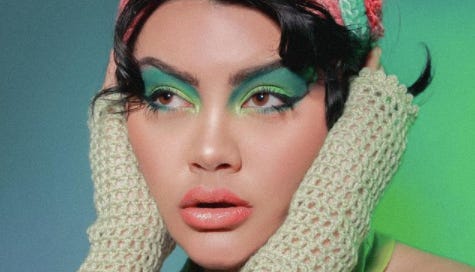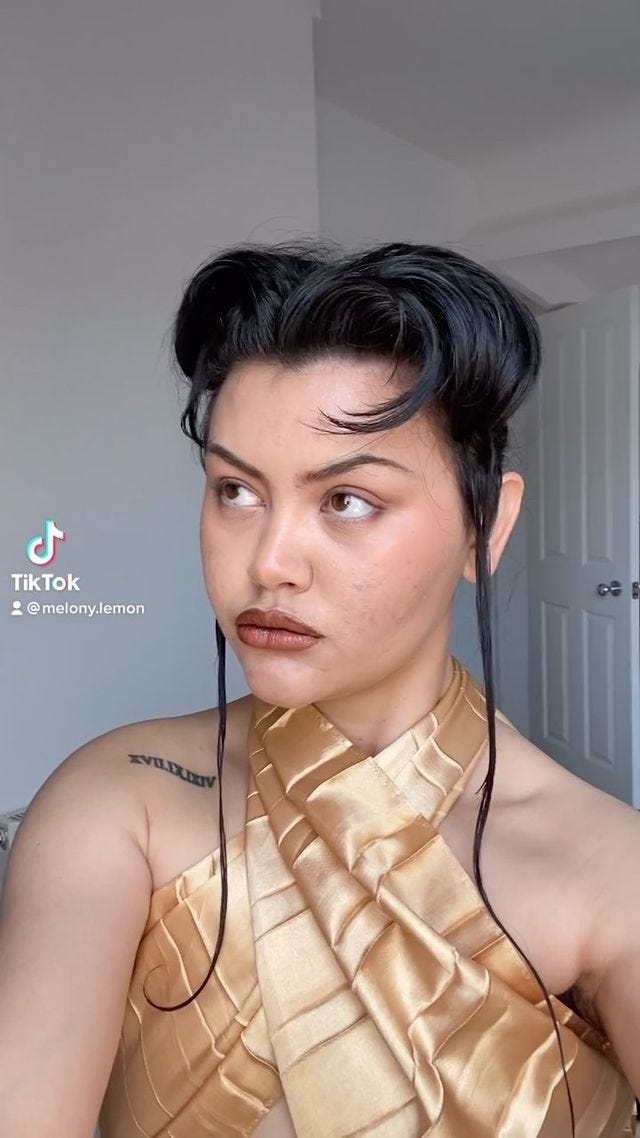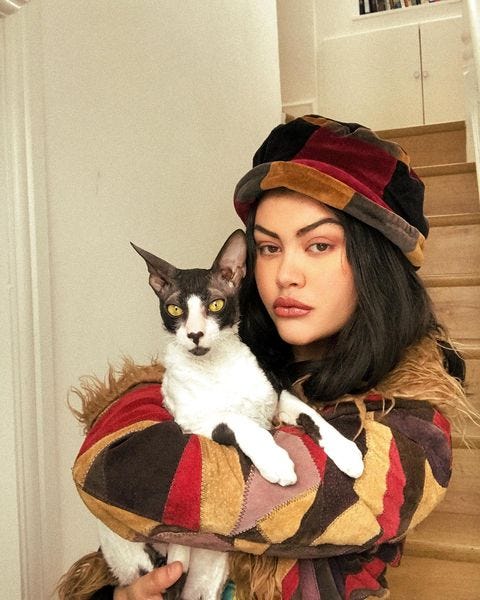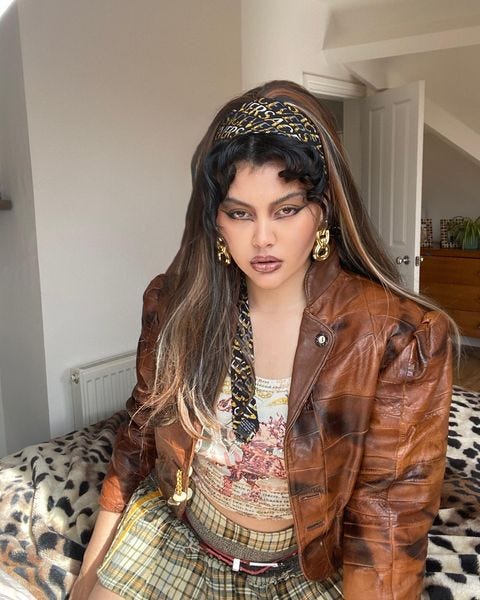Mélanie Lehmann: “We’re always performing different identities, so why label them?”
The visual creative on the expectation of greatness for mixed people and choosing her characters
Hi, welcome back to Mixed Messages! This week I’m speaking to Mélanie Lehmann, who is of Thai and white German heritage. Building on last week’s conversation with Elyssa, Mélanie shares what it was like growing up in a predominantly non-white environment and then moving to the UK, as well as how the Southeast Asian voice is often silent in these spaces.
How do you define your ethnicity?
I always say Thai, or mixed [Thai and white-German]. I don’t know which part of Thailand I’m from, as the stories from my great-grandparents were word of mouth and kind of got lost.
I don’t connect to my German side much. German history is uncomfortable for someone like me, thinking about the war and the fact that I might have been killed. Growing up in Thailand, I learned a lot about the ethnic cleansing happening in countries next to us. It’s something that scares me, so that idea has been embedded in me.
What was it like growing up in Thailand?
In Thailand, I have privilege because my father was earning his German wage. I went to an international school and lived quite a lavish, carefree life. I never understood how snobbish and spoilt I was until I moved to the UK.
In Thailand, I felt like a goddess because I was mixed. I could be naughty and get away with it, and I was horrible to Thai people. I’m glad I progressed from that behaviour.
Are mixed people considered highly in Thailand?
Thai people like mixed people more than white people. We call white Western people ‘farang’, and are polite to their faces but are rude behind their backs. Thai people see mixed people as the perfect mix of the elements of whiteness that they like with their own culture.
There’s an expectation of greatness with mixed people in Thailand. I was expected to go to university and support my family with a good job, whereas my Thai cousins were expected to have families by 15 years old. Despite that, people in my grandma’s village did wish that I had my white dad’s thinner nose instead.
How do you think the conversation around mixed identity needs to change?
I don’t think we hear from Southeast Asian backgrounds enough. People often talk about South or East Asians, and I always feel like the ‘other.’ Also, there’s an overrepresentation of people like me – the Black and Asian experience hasn’t been explored much.
Has being part of the LGBTQ+ community mirrored your mixed identity?
Yes, definitely. I’ve always thought of myself as a duality. Before I met my girlfriend, I considered myself bisexual as well as a mix of two ethnicities. Now, I consider myself a lesbian. Coming out as just liking women has crumbled that binary a bit. Now, it doesn’t matter if I’m one thing or ten billion different things.
Have you ever brought concepts about your mixed identity into your work?
I talk about how being mixed affects my personal life. I speak about my mental health and using therapy to understand my imposter syndrome. Eventually I want to learn that I can be whatever I like and whichever character I want to be. My therapist once said to me, “why are you so hard on yourself? You can not know something about your identity, that’s completely fine.”
So has your sense of identity shifted over time?
Yes, I’m at the beginning of a quest. I’ve always wanted to know what I am and put a label on it, but I had a revelation that we’re always performing identity anyway, right down to when we go to the corner shop. If we don’t label that performance of going to the shop, why label identity?
I used to look at mixed friends and think that they couldn’t really be happy in their mixed identity, that they wanted to ‘be white’, but looking back I think I was just jealous that they were happy as they were. I want to get to a point where I’m not constantly thinking about how I act around my white and Thai family.
How would you sum up your mixed experience in one word?
I think it would have to be a rollercoaster; it’s ever-changing, shifting all the time.
Next week, I’ll be talking to TED speaker and author Sophie Williams, best known as @officialmillennialblack on Instagram. Subscribe to get Mixed Messages in your inbox on Monday!
Enjoy Mixed Messages? Consider supporting me on Ko-Fi so I can continue to grow this newsletter!
Mixed Messages is a weekly exploration of the mixed-race experience, from me, Isabella Silvers. My mom is Punjabi Indian (by way of East Africa) and my dad is White British, but finding my place between these two cultures hasn’t always been easy. That’s why I started Mixed Messages, where each week I’ll speak to a prominent mixed voice to delve into what it really feels like to be mixed.







